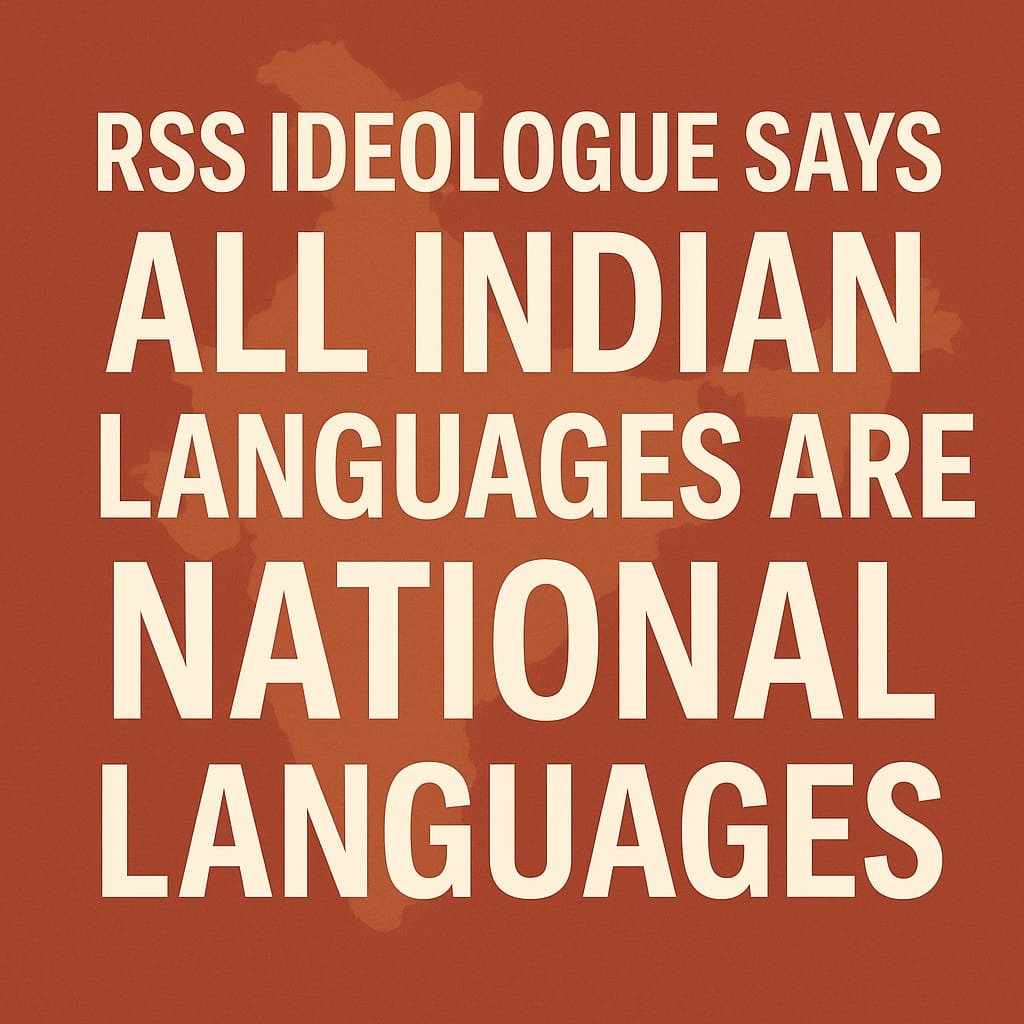
In a recent statement that reflects India's cultural soul, Sunil Ambekar, a senior leader of the Rashtriya Swayamsevak Sangh (RSS), said that all Indian languages should be treated as national languages. He made this remark during a press briefing after the Sangh’s three-day annual Prant Pracharak meeting in Nagpur. His comment comes at a time when language debates, especially over Hindi, are gaining attention in several parts of the country.
Unity in Diversity Through Language
According to the 2011 Census, India is home to over 19,500 languages and dialects. Out of these, 121 languages are spoken by more than 10,000 people. Yet only 22 languages are officially listed in the Eighth Schedule of the Indian Constitution. Hindi is the most widely spoken, followed by Bengali, Marathi, Telugu, Tamil, and others.
Ambekar stated that every language spoken in India, no matter how many people speak it, holds national importance. "This has always been the view of the Sangh," he said. "Children should begin learning in their mother tongue, not in a language forced upon them."
Learning in the Mother Tongue
Ambekar emphasized that education in a child's native language helps improve both understanding and emotional connection. This belief is supported by modern educational research and is a key part of the National Education Policy (NEP) 2020. According to NEP, students should ideally study in their home language until at least Class 5, and preferably up to Class 8.
UNESCO also promotes the use of mother tongue in education. Studies show that children who learn in their native language perform better in school and build a stronger base for picking up other languages. In contrast, starting education in English or Hindi often leads to confusion among children whose mother tongue is different, which can slow down learning.
Rejecting Forced Promotion of Hindi
In recent years, states such as Tamil Nadu, Karnataka, and Maharashtra have raised concerns over what they call the "imposition of Hindi." Political leaders from these states argue that pushing Hindi as the default national language is unfair to speakers of other regional languages.
Ambekar made it clear that the RSS does not support any forced promotion of Hindi. He said that the current unrest in some states shows why giving equal respect to all languages is necessary for national unity. According to him, recognizing the value of each language will help strengthen the bonds among people from different regions.
Message of Peace from Manipur
Apart from the language issue, the RSS also discussed the ongoing ethnic violence in Manipur during its meeting. Ambekar described the situation as both painful and concerning. He stressed that the solution lies in open dialogue, mutual understanding, and peace—not in conflict or aggression.
RSS volunteers are reportedly working in the affected areas to rebuild trust and reduce tensions between communities. Ambekar noted that some areas have already shown positive signs of recovery and improved peace.
Nationwide Outreach Ahead of 2025
As the RSS prepares to mark its 100th anniversary in 2025, the organization has announced plans for a wide national outreach. Ambekar shared that more than 10,000 programs will be held across the country. These efforts will aim to connect with people from all backgrounds—across caste, class, region, and religion.
One of the main goals of this outreach is to promote respect for every Indian language and to ensure that no community feels excluded from the national identity.
Insightful Thought
India’s identity is shaped by the diversity of its languages. From Kashmiri to Konkani, Assamese to Urdu, each language carries with it a history, a culture, and a sense of belonging. Recognizing all Indian languages as national languages is not just a symbolic gesture. It is a way of showing respect, creating equality, and building unity.
The RSS’s recent statements may help change the national conversation—from focusing on conflict over language to encouraging pride in linguistic diversity. In a country where divisions can grow quickly, such a message could help bring people together through the common bond of language.





















